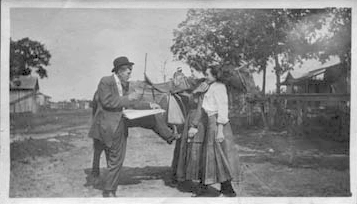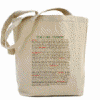just the facts
the importance of checking them
by Deborah K. Millemaci
(return to genealogy)

While sitting here doing an internet search it occurred to me how
important it is to check and recheck all the facts you collect when
researching your family history.
The information we gather in our research comes from a variety of
sources: personal accounts from family members, birth, death, land, and
military records to name a few. One thing I have noticed lately,
especially with online researching are the number of people who may be
researching the same ancestors as you, yet
some of the information they have collected differs from yours. It is
important to remember that even �offical documents" such as birth and death
records may have errors - this is not meant to discourage you, but it is
something of which you should be aware.
I have been corresponding with a couple people
online recently who, in one way or another, are related to a couple of my
ancestors through a sibling, aunt, etc. We have discovered that through
our correspondence some of the information we have gathered is
�questionable.� Case in point, we are trying to determine the dates of birth,
death, and marriage of my great-great-grandparents. I was provided with my
information through a cousin in Kentucky - who has documentation to back up his
research- and has been collecting information
on our family for many years. I also have copies of death certificates to
substantiate this information. That is not to say that legal
documents cannot contain errors, even one spelling mistake on a name can
change everything. The people I am in contact with online also have
have documentation for their information and our facts conflict - see the problem? How does one determine what is authentic
and what isn�t ?
Watch out for tall tales
One of your best sources can be the interviews you have with elder
relatives. Many older family members like to talk about the �old days� - we
just need to make the time to listen! It is important to note though
that as information is passed down thru the generations it may be
�altered slightly� - a piece of information
that may seem insignificant to one person may be vital to another and
may be unintentionally left out. Also, sometimes people have a tendency
to �add� a little more to the story - to make it more interesting to
the listener.
I have spent most of the morning talking to relatives via telephone and
one conversation in particular is one I would like to share with you.
Mistakes common in "official" records
While we
were discussing my great great grandfather, who fought in the Civil War, my
cousin in Kentucky mentioned to me �very often children were raised by other
family members and it wasn�t uncommon that these children took the name of the people they
were raised by.� To me this is very important information - especially
when researching census records. This might explain why we would see
names of people who may be unfamiliar to us as descendants. As a matter of
fact, I recall seeing an
example of this on census records for my great great grandparents. Speaking of
census records, it was also a common practice for census takers not to
visit every house especially in rural areas where it might be miles
between families. You could say that the census takers relied on �heresay� from the
families they did visit, and this often
lead to incomplete or erroneous information.
Carefully record names and dates
We would all like to believe that with the hours we spend researching the
information, once we find it, its correct; but, this is not always the case.
It is very easy to unconsciously transpose a date or a letter in
someone�s name. Unfortunately, mistakes result in more work for the family
historian. In going over some information on one of my ancestors I noticed
that the year of birth for two siblings were the same, and they were not
twins! It is possibility that the extra ancestor was the child of
another relative - that would certainly clear up the confusion!
It is extremely important you be as thorough as possible when recording
names, dates, and other pertinent information - it can mean the
difference in locating your ancestor. Online researching is wonderful and it
can definitely put you in touch with lost relatives. But, is important
to remember that even if you have the
�facts� (to the best of your knowledge), those facts have to be
constantly proven and checked, which is no easy task! Family research is an ongoing process and our
documentation of the events, dates, etc. in
our ancestor�s lives are an integral part of that.
The "non-existent" record
Another pitfall is the �non-existent� record - one that we know or
�hope� exists, but cannot be located. I have been trying for months to
locate a death record for my great-uncle but to no avail. What makes this
so perplexing is the fact we have a copy of the will he wrote and when
it was presented for probate. There
is a 15-day lapse between that time, yet we have been unable to
establish exactly when he died. He died in 1918 so we believe an account of
his death is available, but we are wondering if the possibility exists
his name or other vital information that would identify him as my
great-uncle was mis-recorded. (I will keep you posted on how this plays out)
Note your sources
Noting your sources, whether it be a family member, �official�
documention, etc. is extremely important. Keep a log of your sources making
sure you include the date when you received this information, and from
whom/where it was obtained -- this information may prove valuable.
Remember,
in order to have a complete and credible family history, you have to
have your facts right. In order to accomplish this it will take many
hours of checking and re-checking the information you have compiled, but
trust me it will be definitely worth it!
Think ahead
One more thing I thought I would pass along is something I saw on one
of my mailing lists, which I think is a wonderful idea! This is not
meant to be morbid, but I believe it is something we as family historians
should think about. If something happens to you or to me, who will be
the �Keeper of Our Family History� ? We spent years and endless hours
of research to give something valuable to our children something they
can pass down to future generations, but how do we do that...? We can
accomplish this by adding what is known as a �Codicil� to our will that
stipulates the family member we have entrusted to make our ancestral
history available to our families. An example of this will be found in
our Italian Genealogy Forum on this website.
got an italian genealogy question?
ask a question...



